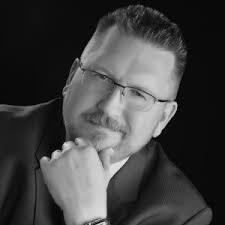American View: Is organised crime a shrewd business sector to cater to? It is in the U.S.A.

The American economy is declining. Business and consumer confidence are weakening. Everyone I know that’s searching for work is growing desperate, as jobs with so-called “living wages” dry up. Everyone seems divided, disinformation saturates our media, and we’re running low on hope. I think that makes this the perfect time to pitch my newest idea for a new book: Have y’all considered changing careers into the criminal sector?
Hear me out! I was chatting my mate Nick on Friday night. Nick and I go back a ways; we were squaddies We worked in the same niche career field. I’d visited New York and New Jersey, while Nick grew up there. We’re near opposites politically and culturally. We often argue and rarely agree, but we get along fine. He’s taught me a lot about East Coast culture, and I’ve taught Nick how to be a Texan (never did get him to wear a cowboy hat, though). This convo ran true to form: Nick’s perspective on current events and mine were nearly perpendicular.
During our conversation, Nick brought up how much he’d learned from reading my books. He asked what I was working on next and I was embarrassed to admit that I’ve been stymied for a while now. Work and family have kept me busy. It’s hard enough to craft a weekly column. I’ve sketched a few outlines, but none of them has seemed compelling enough to commit to.
I asked Nick if there was anything that he wanted to read, and he quipped “Yeah! You should take all this management and leadership material you’ve written and refocus it for the organised crime industry!”
Sometime later, after a lot of laughing, I decided to play along. “Whatcha thinking, mate? Leadership tips for improving morale in the arms smuggling sector? How to set actionable metrics for illicit drug manufacturers? Maybe a book on recruiting that helps supervisors identify just the right balance between moral flexibility and reliability?” Nick was in favour of all these ideas; after all (he said) “When you think about it, organised crime isn’t much different than regular business.”

That assertion brought my train of thought to a crashing halt. Nick was right. When you get right down to it, there’s almost no difference between a “legal” and an “illegal” enterprise these days. Consider the characteristics that are supposed to differentiate the two working worlds:
- Both legal and illegal enterprises attempt to pay as little tax as possible, with a goal of zero, and will bend or ignore the law to achieve it.
- Both are willing to break any law if the profits they’ll generate for their shareholders exceeds the fines they’ll pay when they’re caught.
- Both focus on satisfying consumer demand. What exactly makes selling weapons to unhinged violent criminals at a gun store any different than selling those same weapon to gang members at a Texas gun show? It’s goods and services, baby!
- Both routinely compromise their regulators with bribes, gifts, and kompromat so their shenanigans will be tolerated.
The truth kind of hurts, doesn’t it? Honestly, given the history of corporate malfeasance in the U.S.A., organised crime might even have a better reputation than blue chip companies when it comes to labour relations. I’ve never once heard of a criminal syndicate laying off thousands of loyal employees and taking away their benefits so an executive could juice short term financials.

Be that as it may, the biggest difference between, say, a FORTUNE 500 mega-corp and, say, the Sinaloa Cartel seems to be the amount of physical violence employed in resolving disputes. That’s a fair argument. I have yet to see AT&T branded technicals skirmishing with Verizon branded IFVs in a burning mall but that scene can’t be far away. If the U.S. government can black bag citizens off the streets without a warrant or legal cause, why can’t Apple or Twitter? Seems a lot faster and more cost-effective than suing one another ...
Besides, it’s not like our “legal” institutions can claim any moral high ground. The U.S. government is literally murdering foreign sailors in violation of laws, regulations, and treaties. Our Secretary of Defence (sod that “of War” rebranding nonsense) got his bachelor’s from a Princeton and his master’s from Harvard. If they’re happy to educate mass murderers, then where’s the dishonour in teaching project management techniques to scammers working for Scattered Spider? Sure, there might be some legal complications, but moral ones? I checked the APT group’s Wikipedia page and didn’t see any entries about murdering anyone.
To be clear, I’m not here to advocate for criminal conduct. The exact opposite, in fact. We’re living in a Poundland Cyberpunk Dystopia. It wouldn’t be much of a stretch to suggest that 2025 is turning into a Borderlands 4 LARP with a duller colour palette and crappier dialogue options. Our constitution is playing the title character in a crap remake of Weekend at Bernie’s. We don’t have flying cars, but we have most every other cultural perversion foretold in Max Headroom.
All that is to say that it really shouldn’t be that difficult to pen a new business book aimed at the Gangster-American demographic in the current political and cultural environment. After all, leadership is universal: every group and activity needs leadership to some degree. All organisations need stable, predictable management as well. The same people skills that make a leader or team successful in corpo space apply in gangland. Criminals seem like an underserved demographic, if anything.

Seriously, though: I contend that it’s a bloody disgrace that American businesses and government agencies are near-as-makes-no-difference indistinguishable from so-called “criminal enterprises” these days. We’re supposed to be a country of laws with consequences for violating them. Maybe we never lived up to that ideal (looking at you, robber barons and energy companies) but there were at least some sincere attempts to hold institutions accountable. Now? We seem to have given up entirely. If you can’t dissuade ‘em, join ‘em.
We’re living through astoundingly warped times. It’s discouraging to see the ideals and principles we claimed to live by tossed aside like a burger wrapper out a stolen car’s window. That said, most of us still must make a living. Can you, in good conscience, advise desperate people to place their principles over their own and their family’s survival when the powers-that-be that control their lives have no principles to speak of? To quote Justin Sullivan, “no one needs morality when there isn’t enough to eat.”
I’d like to think we can do better. Still, if I get laid off again, that business advice book for gangsters might just be the product that feeds my family. Nick made a strong argument: life shouldn’t be that way in a moral universe but here we are. If you’re not rich enough to be untouchable, then even the most repugnant potential income streams must remain on the table. Points to New Jersey for their cynical pragmatism.

Keil Hubert
You may also like
Most Viewed
Winston House, 3rd Floor, Units 306-309, 2-4 Dollis Park, London, N3 1HF
23-29 Hendon Lane, London, N3 1RT
020 8349 4363
© 2025, Lyonsdown Limited. Business Reporter® is a registered trademark of Lyonsdown Ltd. VAT registration number: 830519543





